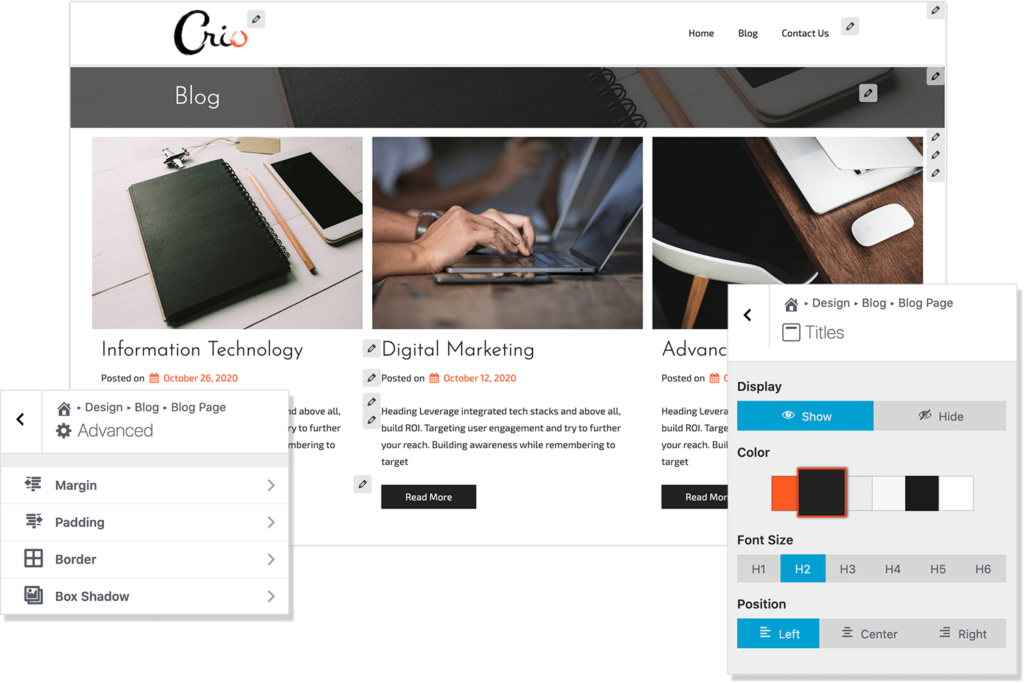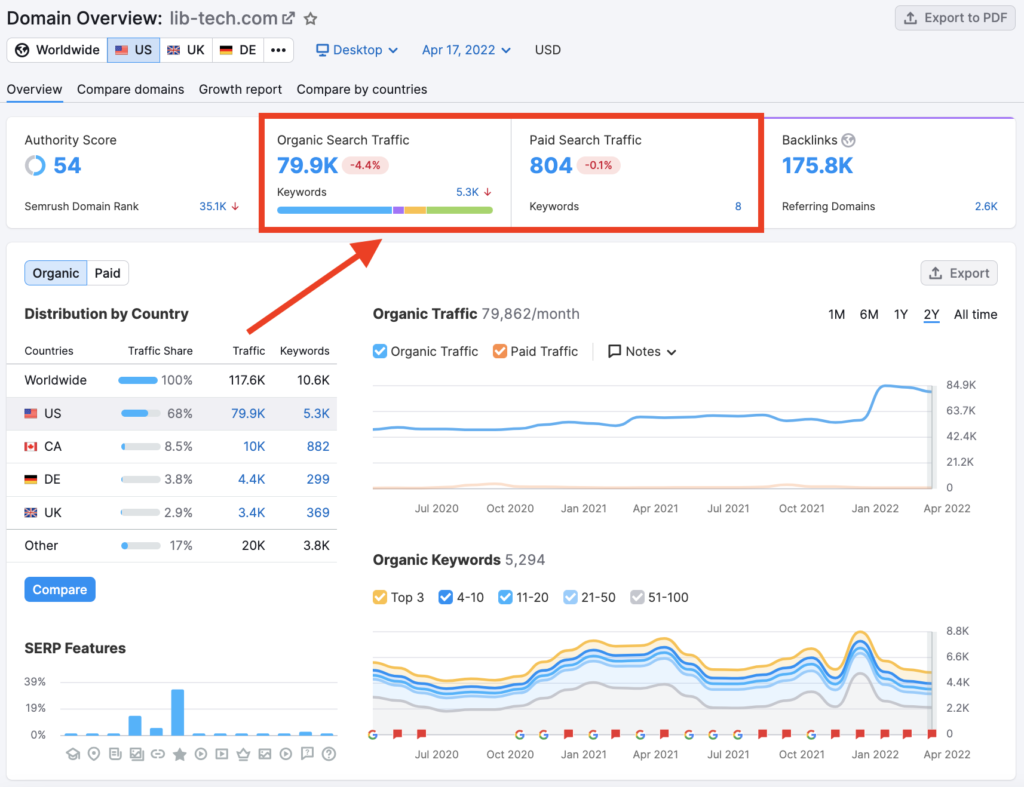Essential Website Management Tools | InMotion Hosting

Managing your website is more than keeping it live; it requires ensuring every element operates seamlessly to improve the user experience. Website management is the ongoing process of maintaining and optimizing your website for the best possible user experience. It is crucial because it helps you achieve your business goals – thought leadership, revenue increase, brand awareness, loyal brand community, etc. Your website’s level of functionality will determine whether visitors read your content or buy your products.
However, a well-managed website doesn’t happen by chance or commitment alone. You need the right website management tools to guarantee results. They help you streamline your operations, improve output, and simplify the process. Whether managing multiple blogs or simply maintaining your website, website management tools position you for success effortlessly.
What You’ll Learn in This Guide
In this guide, you’ll learn:
- How website management tools can help you streamline business operations
- How effective small business website management can help you achieve your business goals
- How to track your performance and optimize your website
- How to protect your website data with tools that ensure security
- How to tailor your tech stack with the proper website management tools
Content Management Systems (CMS)
Content Management Systems (CMS) help you manage creating, editing, organizing, and publishing digital content. Popular CMS options like Drupal, Joomla, and WordPress have user-friendly interfaces and customizable features. However, WordPress is preferred for small business website management because of its flexibility and vast plugin options. InMotion’s WordPress hosting optimization ensures excellent performance, fast page speed, and improved security, which are ideal for every website owner.
When choosing a CMS, look for features such as customization options, content scheduling, ease of use, SEO tools, mobile friendliness, and customer support. These features are cost-effective ways to optimize your website.
Web Hosting Solutions
Business websites can only function properly with reliable web hosting. Reliable web hosting determines your page load speed, user experience, and data security, directly impacting your business goals. There are three types of web hosting solutions;
- Shared: Cost-effective for beginners but limited in resources.
- VPS: Virtual Private Server hosting offers more control and resources for website growth.
- Dedicated: An entire server that provides maximum performance and customization.
The key hosting features you should consider are round-the-clock support, scalability, and SSL certificates. InMotion Hosting provides robust web management, allowing businesses to grow and scale quickly.
Everything Your Website Needs to Scale
Launching your website is easier than you think. With up to 80% in savings on web hosting, bringing your business online is easier and more affordable than ever. Act now to take advantage of this limited time offer.
99.99% Uptime
24/7 Human Support
100% Money-Back Guarantee
Web Hosting Plans
File Management Tools
File management tools help you easily manage and organize website files, such as images, databases, etc. They include SFTP (Secure File Transfer Protocol) clients, which transfer files from computer systems to web servers and cloud storage solutions. Popular SFTP clients include Cyberduck, FireFTP, FileZilla and ForkLift.

Cloud storage solutions such as Google Drive, Amazon S3, and DropBox are secure ways to save and share your files while ensuring they are easily accessible and facilitating collaboration among your team members.
Backup management tools regularly back up your data, preventing data loss and enabling quick recovery if something goes wrong in the business.
Website Builders
Website builders help you design and maintain websites without in-depth coding expertise. They have built-in customizable features you can use to launch a website that meets professional standards in no time. Popular website builders include BoldGrid (which comes with our Shared Hosting and WordPress Hosting products), Elementor, and Divi for WordPress sites. Proprietary fee-based website builders include platforms like Wix, Squarespace, Weebly, and Strikingly.

When choosing website builders for business websites, key features are a friendly user interface, customization options, available plugins, mobile friendliness, SEO capabilities, e-commerce integration, and payment gateways.
Integration capabilities with other website management tools, such as Content Management Systems (CMS) and email marketing platforms, are also essential. InMotion WordPress Hosting offers these integration capabilities, improving your business performance.
Social Media Management
According to Statista, social media advertising is the second biggest market within digital advertising. In 2023, there were over 5 billion social media users worldwide. This shows the potential benefits of optimizing your business’s social media presence to gain more exposure. Social media management tools help you manage your positioning.
Scheduling platforms such as Sendible, Hootsuite, and Buffer can schedule posts, track your engagement, and analyze your performance. They handle the bulk of the work while you save time and energy.
Analytics tools like SproutSocial and Google Analytics provide detailed insights into your social media performance. They track key metrics such as audience demographics, click-through rates, and engagement—likes, comments, and shares. These insights provide the required data to fine-tune your social media strategy.
Integration with website content is important. Most social media management tools can integrate with your CMS, product pages, or email marketing platforms. InMotion Hosting supports this integration, thereby enhancing small business website management.
SEO Tools and Analytics
SEO management tools help you optimize your website for higher rankings, visibility, and search results traffic. They also come with built-in analytics that provides detailed insights into areas of improvement for your website.
Keyword research tools help you identify high-volume keywords in search queries to include them in your content and stand a chance of ranking in search engine results. Popular keyword research tools include Ahrefs, SEMrush, and Google Keyword Planner.

Analytics is an essential part of keyword research. Some keyword research tools, such as SEMrush, have built-in analytics features, while others, like Google Analytics, are specialized analytics platforms. Google Search Console helps you track your website’s organic search performance, such as keywords that drove clicks to your website, and where you rank for these terms.
Performance monitoring tools help you assess your website’s general functionality. Popular tools include Moz, GTmetrix, and Ahrefs. They help you identify technical issues such as page load speed, security breaches, etc.
eCommerce Management Solutions
eCommerce management solutions help you manage your online store efficiently. Shopping cart platforms like WooCommerce and Shopify help you create and manage your online store. They offer customizable features, integration with payment gateways, and product features for small business website management.
Inventory management tools such as Zoho help you manage your online store so that your products are always available when your customers need them.
Payment processing integration is vital for eCommerce management. Popular solutions include Stripe and PayPal, offering secure pathways for financial transactions.
Control Panel Solutions
Web-based Control Panel Solutions help you manage the technical aspects of your website, such as server settings, files, and domains. cPanel is an industry-leading panel with features such as one-click installation, email management, and file backups, for effective website management.

InMotion Hosting also provides an alternative panel called Control Web Panel (CWP), which helps manage multiple business websites. CWP has customizable features such as security configuration, server management, automated backup, etc.
These control panel solutions also integrate with website optimization tools, including database management and caching tools, for better functionality.
Email Marketing Platforms
Email marketing platforms allow small businesses to communicate effectively with their audience and increase conversions. They are also used to create and manage email campaigns to achieve specific business goals.
Popular email marketing platforms include Mailchimp, HubSpot, Kit (ConvertKit), and Amazon Simple Email Service (SES). They include built-in features such as website integration, A/B testing, mobile responsiveness, user-friendly interfaces, and customizable email templates.
These email marketing platforms also have automation features that allow you to set up emails triggered by specific actions, such as signups, abandoned carts/purchases, etc. This improves communication, which potentially increases revenue.
List management features in these email marketing platforms help business owners segment their audience based on demographics, preferences, psychographics, etc., for more targeted and personalized email campaigns.
Business Email Solutions
Business email solutions offer professional email management services that enhance business credibility. Customers tend to trust a professional email setup more, increasing their chances of being open to the brand.
Email hosting options provide custom domains, robust technical support, and large storage. InMotion’s secure and scalable email solutions are a perfect starting point.
Security features such as message encryption, spam filtering, cybersecurity measures, and malware protection to safeguard your customers’ sensitive information and comply with data protection measures.
You can also integrate InMotion’s business email solutions with other tools such as content management systems (CMS), email marketing platforms, customer relationship management (CRM) platforms, video conferencing tools, etc. This allows you to build a robust business structure and potentially increase revenue.
Best Practices for Tool Integration
Integrating the right tools is essential for web management for business, but it must be done correctly.
First, you need to choose compatible tools. Every tool isn’t designed to work with your website, and many options exist, so you must know what you want. First, identify your website’s needs and choose the best option. Ensure what you settle for has built-in integration capabilities and customizable features.
Next is integration strategies. Start with tools that can natively integrate with other tools. You can use third-party tools such as Zapier to integrate tools with non-native integrative features. You can automate this task to increase productivity.
Low-cost or free tools don’t usually provide the secure and scalable solutions necessary for small business website management. Purchasing premium solutions is an investment in your business in the long run. However, the cost versus the benefits should be measured. Consider hidden costs, add-ons, subscription/membership fees, etc. Always strike a balance between price, budget and functionality.
Conclusion
Small business website management starts with choosing the right tools to streamline operations and improve performance. Every tool is useful, from content management systems (CMS) to business email solutions. When selecting website management tools, consider your business needs, tool usability, mobile responsiveness, customization options, and integration capabilities. Integrate tools with native integration features naturally where possible, and use a third-party solution like Zapier for tools that don’t integrate with others.


